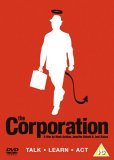We cannot resign ourselves to Europe being no more than a huge market or a free trade area
And while I am in total agreement with this statement, I don't believe that the 27 member EU in existence today is capable of any more integration. There are so many countries that disagree with the idea of a United Europe; it's not just the Brits anymore. The EU of 2007 is too heterogeneous, too large and there is lack of political will. Two-Speed Europe here we come...


 In a prime example of blather, the BBC (cf. some Murdoch-owned-fact-twisting medium) engaged in a smearing generalisation of the Hellenic population's sentiments on the U.S., by invoking parts of the history of the 20th century where U.S. policy harmed Hellas and its people. And while it is true that many Hellenes, like most of 'Old-Europeans' (and, indeed, many Britons) have strong feelings on many U.S. foreign policy and military actions ('insanity') witnessed in recent (and not so recent) times, that in itself in no way implies or signifies 'widespread anti-Americanism'. Furthermore, the implication of any association between the intent of a terrorist attack by a small extremist group of people with the generalised feelings of one nation towards another is, at least, unprofessional, if not sensationalistic and offensive. I'm inclined to think that Malcolm Brabant's writing is brimming with potent bull.
In a prime example of blather, the BBC (cf. some Murdoch-owned-fact-twisting medium) engaged in a smearing generalisation of the Hellenic population's sentiments on the U.S., by invoking parts of the history of the 20th century where U.S. policy harmed Hellas and its people. And while it is true that many Hellenes, like most of 'Old-Europeans' (and, indeed, many Britons) have strong feelings on many U.S. foreign policy and military actions ('insanity') witnessed in recent (and not so recent) times, that in itself in no way implies or signifies 'widespread anti-Americanism'. Furthermore, the implication of any association between the intent of a terrorist attack by a small extremist group of people with the generalised feelings of one nation towards another is, at least, unprofessional, if not sensationalistic and offensive. I'm inclined to think that Malcolm Brabant's writing is brimming with potent bull.